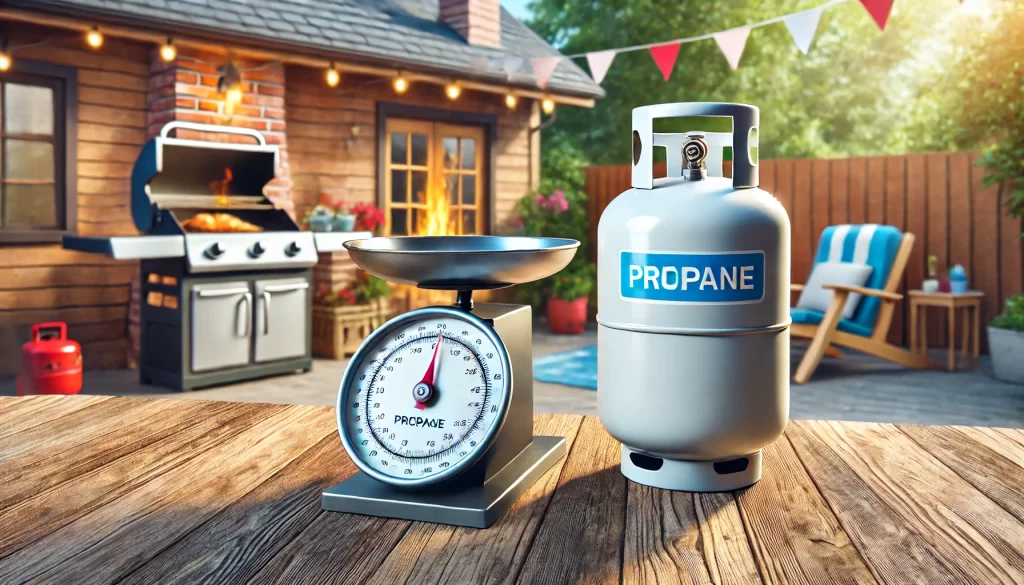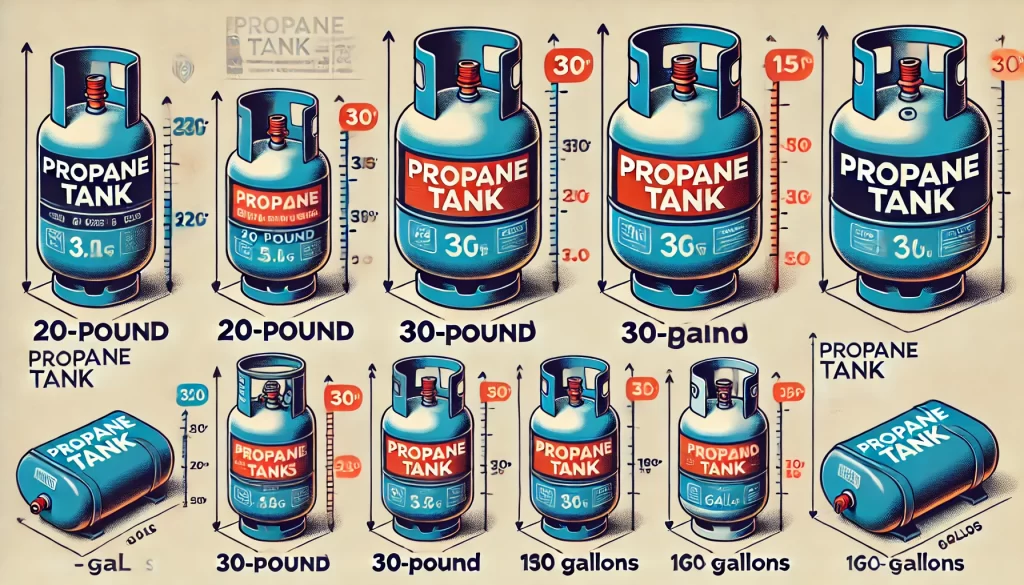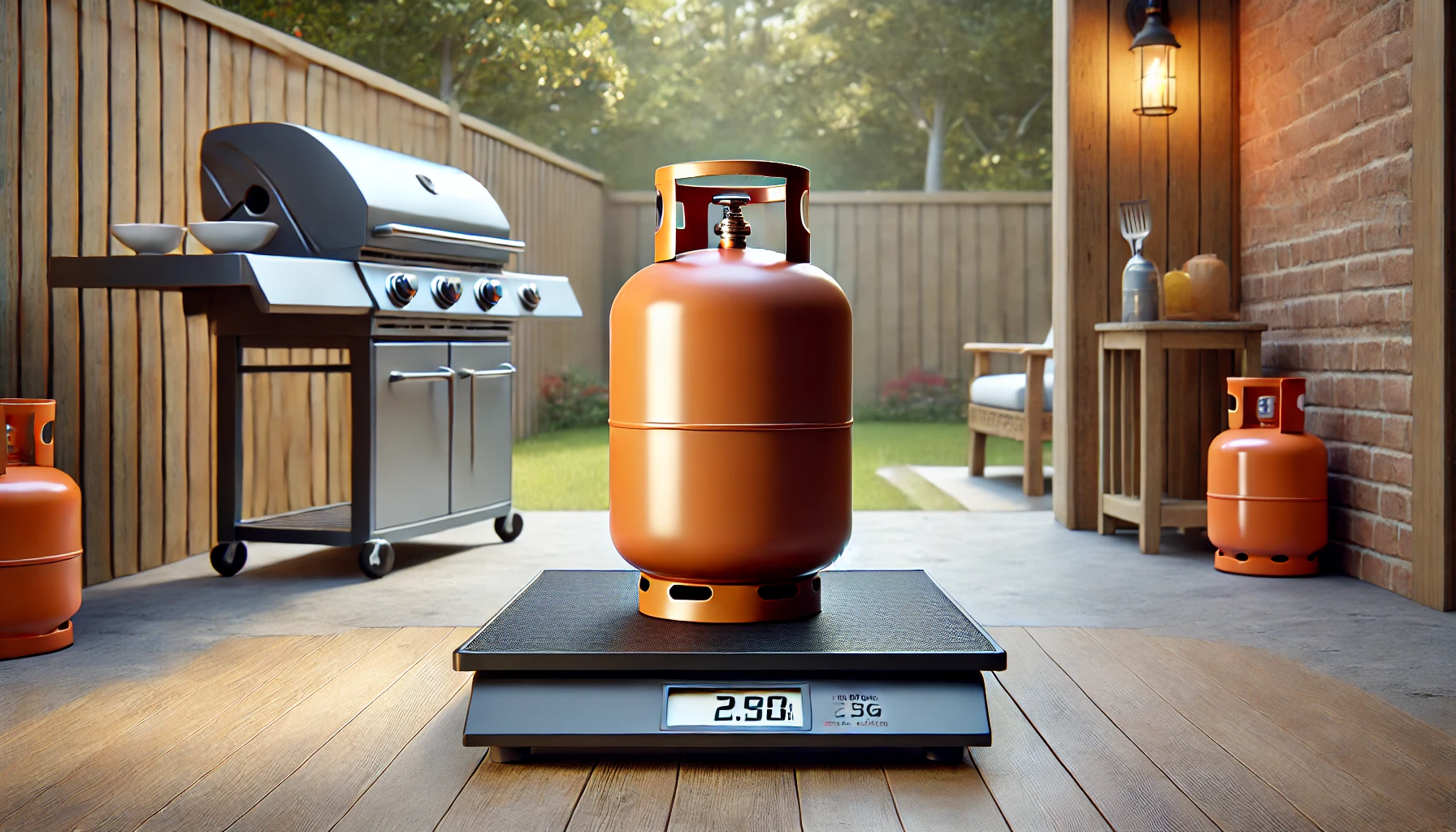Table of Contents
Propane is a standard fuel for heating, cooking, and even vehicles. It begs the question, “How much does propane weigh?” This is an important question, mainly if you regularly deal with propane tanks. Knowing how much propane weighs can help you ensure safety, plan your fuel usage, and understand the propane’s value. Let’s dive into some surprising and valuable facts about propane weight.
What Is Propane?

How Much Does Propane Weigh? Propane is a colorless, odorless gas stored in its liquid form inside pressurized tanks. It’s a widely used energy source, known for burning cleanly and being easy to transport. Propane is commonly used for powering stoves, heaters, and even vehicles.
Now that we know what propane is let’s get to the big question: How much does propane weigh?
How Much Does Propane Weigh?

The weight of propane is an essential detail for both safety and practical reasons. In its liquid form, propane weighs approximately 4.2 pounds per gallon. This might not seem like much, but when you consider the size of propane tanks, the total weight can add up quickly.
For example:
- A 20-pound propane tank (often used for grills) holds about 4.7 gallons of propane.
- A 100-pound propane tank holds around 23.6 gallons of propane.
Why Should You Know How Much Propane Weighs?
Understanding how much propane weighs helps in several ways:
- Safety: Overfilling or mishandling propane tanks can be dangerous. Knowing the weight helps ensure tanks are filled correctly.
- Fuel Management: Knowing how much propane you have left helps you plan refills better if you use propane for heating or cooking.
- Transport: When moving propane tanks, knowing how much they weigh is essential to ensure safe transportation.
How to Measure Propane Weight
One common way to measure how much propane you have is to weigh the tank. Most tanks will have a stamped weight (often labeled “Tare Weight” or “TW”) on the side. This represents the empty weight of the tank.
Here’s how you can measure how much propane is left:
- Weigh the tank. Use a bathroom or kitchen scale to weigh the tank.
- Subtract the tare weight. The remaining number is how much propane is left in the tank.
For example, if your tank weighs 30 pounds and the tare weight is 17 pounds, then you have 13 pounds of propane left.
Propane Tank Sizes and Their Weights
Common Propane Tank Sizes
Let’s examine some of the most common propane tank sizes and their weight when full.
- 20-pound tank: A full 20-pound propane tank weighs around 37 pounds (20 pounds of propane + 17 pounds of tare weight). These tanks are most often used for grilling.
- 30-pound tank: A full 30-pound propane tank weighs about 55 pounds.
- 100-pound tank: A full 100-pound propane tank weighs around 170 pounds.
How Much Propane Does Each Tank Hold?
Here’s a breakdown of the amount of propane each tank holds:
- 20-pound tank: Holds about 4.7 gallons of propane.
- 30-pound tank: Holds around 7 gallons of propane.
- 100-pound tank: Holds approximately 23.6 gallons of propane.
This breakdown can help you plan your propane usage based on the size of your tank.
Factors That Affect Propane Weight
While propane has a set weight (4.2 pounds per gallon), certain factors can impact the weight of propane in your tank.
Temperature Changes
The weight of propane can vary slightly depending on temperature. As propane gets colder, it becomes denser. This means you can fit more propane into your tank in cold weather. However, the difference is usually not significant enough to affect day-to-day use.
Tank Condition
Old or damaged propane tanks may affect how much propane they can safely hold. It’s essential to regularly inspect your tank for rust, dents, or leaks. If your tank is in poor condition, it might not hold propane as well as it should.
How to Ensure You’re Getting the Right Amount of Propane
When you buy propane, you want to ensure you get what you pay for. Here are some tips for ensuring you’re getting the correct amount.
Check the Scale
When filling your tank, make sure the supplier uses a scale to measure the amount of propane. This ensures that the tank is not overfilled, which can be dangerous or underfilled, which means you’re not getting the propane you paid for.
Watch for Propane Leaks
A leaking propane tank will lose propane, making it weigh less than it should. Always inspect your tank for leaks before and after filling. You can do a simple leak check by applying soapy water to the valve and looking for bubbles indicating escaping gas.
Also Read: How Much Does MSNBC Pay Neal Katyal? Shocking Numbers Revealed!
How Long Does Propane Last?
Propane doesn’t go rancid or expire, one of its most significant benefits. As long as the tank is stored correctly, propane can last indefinitely. But how long does a propane tank last before refilling it?
The lifespan of a propane tank depends on how much you’re using. For example:
- A 20-pound tank used for grilling will last around 18-20 hours on medium heat.
- A 100-pound tank used for home heating could last 20-30 days, depending on usage.
To wrap things up, how much does propane weigh? We’ve learned that propane weighs 4.2 pounds per gallon, and depending on the tank size, you can quickly calculate how much your tank weighs when full. Knowing these details is essential for safety and fuel management, ensuring you always have the propane you need for cooking, heating, or other uses.
If you regularly use propane, knowing its weight and how to measure it can save you time and money. Always check your tank’s weight to track how much propane is left, and remember the safety precautions when handling propane.
With this knowledge, you’re better equipped to manage your propane supply, ensure safe usage, and get the best value from your propane tanks.




